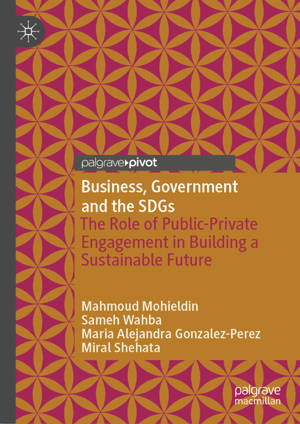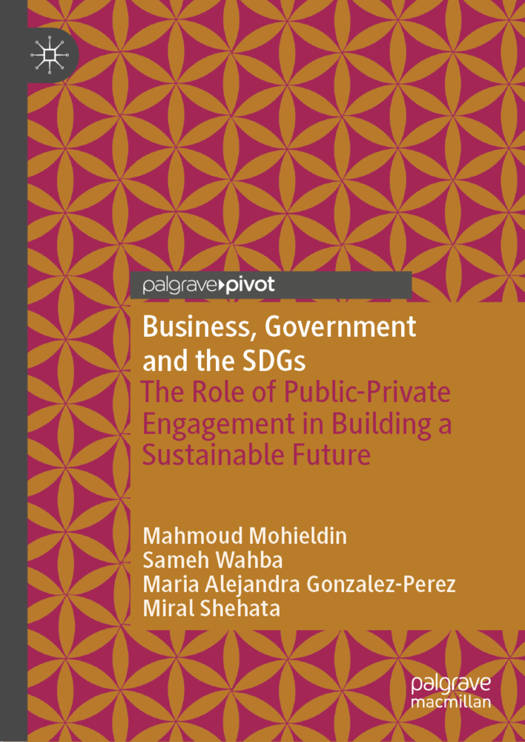
Bedankt voor het vertrouwen het afgelopen jaar! Om jou te bedanken bieden we GRATIS verzending (in België) aan op alles gedurende de hele maand januari.
- Afhalen na 1 uur in een winkel met voorraad
- In januari gratis thuislevering in België
- Ruim aanbod met 7 miljoen producten
Bedankt voor het vertrouwen het afgelopen jaar! Om jou te bedanken bieden we GRATIS verzending (in België) aan op alles gedurende de hele maand januari.
- Afhalen na 1 uur in een winkel met voorraad
- In januari gratis thuislevering in België
- Ruim aanbod met 7 miljoen producten
Zoeken
Business, Government and the Sdgs
The Role of Public-Private Engagement in Building a Sustainable Future
Mahmoud Mohieldin, Sameh Wahba, Maria Alejandra Gonzalez-Perez, Miral Shehata
Hardcover | Engels
€ 83,95
+ 167 punten
Omschrijving
This book seeks to revise and challenge the roles and traditional realms of influence that national and local governments, and businesses at a critical juncture in terms of achieving sustainable development, faces when tackling the dual challenges of climate change and post-COVID recovery. Using the broader lens of the 2030 UN Sustainable Development Goals (SDGs) to assess the roles and responsibilities of each of these stakeholders and their relationships, the book offers policy, economic arguments, case studies and examples to argue that neither national or local governments, nor companies, could afford to deviate from the SDGs in the recovery from the current crisis, nor that the imperative of bold climate action should detract from the broader focus on sustainability. The analysis frames the debate of how a balance between people, planet, and profits can be achieved and how nations, regions and cities, and businesses, with their representative organizations, can achieve a sustainable recovery from the current global crisis, and contribute to climate smart, resilient and inclusive development.
Specificaties
Betrokkenen
- Auteur(s):
- Uitgeverij:
Inhoud
- Aantal bladzijden:
- 162
- Taal:
- Engels
Eigenschappen
- Productcode (EAN):
- 9783031111952
- Verschijningsdatum:
- 2/11/2022
- Uitvoering:
- Hardcover
- Formaat:
- Genaaid
- Afmetingen:
- 148 mm x 210 mm
- Gewicht:
- 362 g

Alleen bij Standaard Boekhandel
+ 167 punten op je klantenkaart van Standaard Boekhandel
Beoordelingen
We publiceren alleen reviews die voldoen aan de voorwaarden voor reviews. Bekijk onze voorwaarden voor reviews.









